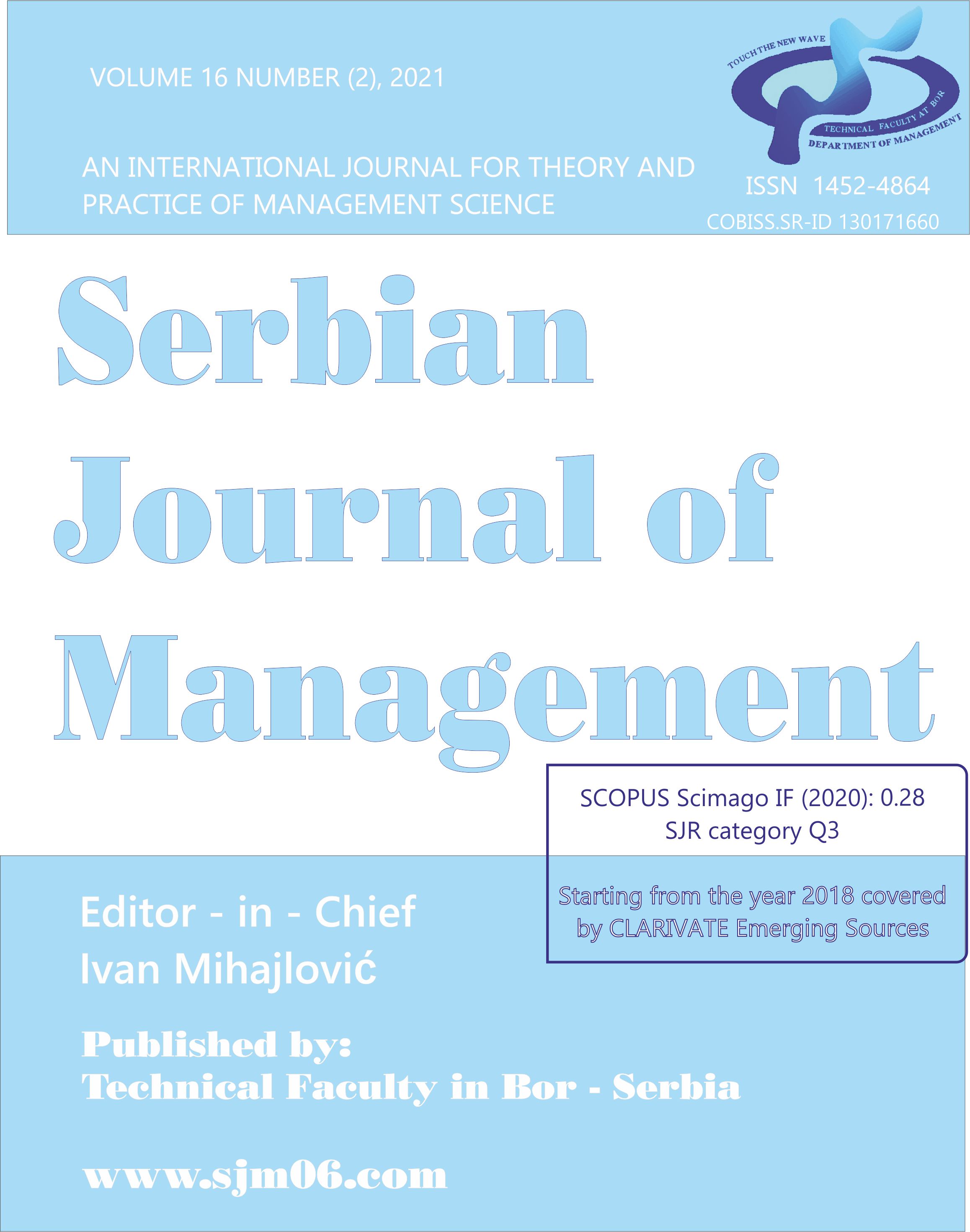Innovative design of waste processing technologies
Abstract
Designing modern waste recycling systems is an urgent problem. The experience of attracting masters from two leading Russian universities in organizing interaction and cooperation in the development and implementation of waste sorting complexes is considered. Faculties of Russian Academy of National Economy and Public Administration and Moscow Institute of Physics and Technology held a project session for developing and launching innovative technological projects on the market called “Techno marketing”. The developed methodological base made it possible to combine educational and entrepreneurial tasks and ensure the promotion of student technological projects. As a result of the conducted project session, a project on the use of computer vision systems for sorting waste was developed, the competitive differences of the project and its technical and economic indicators were presented. The mechanisms for the implementation of an innovative waste sorting project have been determined. Despite being twice as expensive, the waste sorting machine is able to fully pay off 3 times faster than manual sorting, justifying further investment in the project.
References
Environmental Protection Agency. (2017). National Overview: Facts and Figures on Materials, Wastes and Recycling (DHHS Publication No. ADM 90-1679). Washington D.C., US: Government Printing Office.
Faibish, S., Bacakoglu H., & Goldenberg A. (1997). Proceedings from IEEE’97: International Conference on Robotics and Automation, Albuquerque, New Mexico, 9–14.
Ijjasz-Vasquez, E., Wahba, S., & Kaza, S. (2018). Here’s what everyone should know about waste. Retrieved from https://blogs.worldbank.org/sustainablecities/here-s-what-everyone-should-know-about-waste
Kosareva, E., & Safronova, N. (2016). Continuing Education for Managers as the Basis of Innovation Economy (Experience of the Russian Presidential Academy of National Economy and Public Administration). Serbian Journal of Management, 11 (1), 129-140.
Putin, V. (2018). Plenary meeting of the Congress of the Russian Union of Rectors. Retrieved from http://kremlin.ru/events/president/news/57367
Shirokova, G. V (2015). University environment and entrepreneurial activity of students: the role of business experience and entrepreneurial self-efficacy. Education issue, 3, 171-207.
Trine L.N. (2013). Report on assessment of relevant recycling technologies. Retrieved from https://ec.europa.eu/environment/life/project/Projects/index.cfm?fuseaction=home.showFile&rep=file&fil=PLASTIC_ZERO_annex_d32_action4.2_report_on_assessment_sept2013_final.pdf
Wang, T. (2018). Global municipal solid waste generation projection 2016-2050. Retrieved from https://www.statista.com/statistics/916625/global-generation-of-municipal-solid-waste-forecast/#statisticContainer
West, L. (2020) What Are the Benefits of Paper Recycling. Reading, MA, US: ThoughtCo.
The Author wishes to submit the Work to SJM for publication. To enable SJM to publish the Work and to give effect to the parties’ intention set forth herein, they have agreed to cede the first right to publication and republication in the SJM Journal.
Cession
The Author hereby cedes to SJM, who accepts the cession, to the copyright in and to the paper.
The purpose of the cession is to enable SJM to publish the Work, as first publisher world-wide, and for republication in the SJM Journal, and to grant the right to others to publish the Work world-wide, for so long as such copyright subsists;
SJM shall be entitled to edit the work before publication, as it deems fit, subject to the Authors approval
The Author warrants to SJM that:
- the Author is the owner of the copyright in the Work, whether as author or as reassigned from the Author’s employee and that the Author is entitled to cede the copyright to SJM;
- the paper (or any of its part) is not submitted or accepted for publication in any other Journal;
- the Work is an original work created by the Author;
- the Author has not transferred, ceded, or assigned the copyright, or any part thereof, to any third party; or granted any third party a licence or other right to the copyright, which may affect or detract from the rights granted to SJM in terms of this agreement.
The Author hereby indemnifies the SJM as a body and its individual members, to the fullest extent permitted in law, against all or any claims which may arise consequent to the warranties set forth.
No monetary consideration shall be payable by SJM to the Author for the cession, but SJM shall clearly identify the Author as having produced the Work and ensure that due recognition is given to the Author in any publication of the Work.
Should SJM, in its sole discretion, elect not to publish the Work within 1 year after the date of this agreement, the cession shall lapse and be of no further effect. In such event the copyright shall revert to the Author and SJM shall not publish the Work, or any part thereof, without the Author’s prior written consent.

